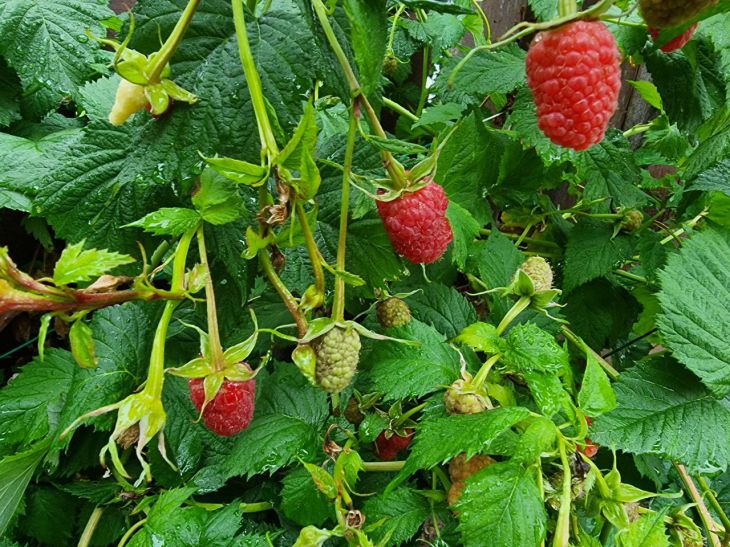Have you ever wondered why raspberries growing next to certain plants lose their strength, get sick or stop bearing fruit altogether? This is not a coincidence.
Plants have their own preferences and dislikes, and raspberries are no exception, says Anastasia Kovrizhnykh, an expert in the online publication BelNovosti, an agronomist and landscape designer.
What is the secret of a successful neighborhood?
Each plant interacts with its environment, releasing substances into the soil that can either support or suppress its neighbors.

Raspberries, despite their unpretentiousness, are sensitive to the chemical composition of the soil and the presence of competitors for nutrients.
Plants to Avoid Near Raspberries
Potato
This neighborhood poses a threat not only to the harvest, but also to the health of the raspberries. Potatoes attract pests such as wireworms and Colorado beetles, which can attack the roots of the bushes. In addition, fungal diseases of potatoes can also affect raspberries.
Tomatoes
Despite their popularity in gardens, tomatoes emit substances that inhibit the growth of raspberries. In addition, they are susceptible to the same diseases, such as late blight, which increases the risk of infection.
Cucumbers
Cucumbers require a lot of moisture and nutrients, which creates competition for raspberries. Raspberries often suffer from a lack of resources near these plants.
Cherries
The cherry tree has a powerful root system that draws nutrients from the soil. This makes it a poor neighbor for raspberries, especially in poor soils.
Cabbage
All types of cabbage, including broccoli and cauliflower, deplete the soil and release substances that can negatively affect the growth of raspberries.
What are the dangers of bad neighborhoods?
If raspberries are in an unfavourable environment, their bushes begin to be oppressed. This is expressed in:
- slow growth of shoots;
- reduction in the quantity and quality of berries;
- increased susceptibility to disease;
- early death of plants.
Plants-friends for raspberries
To make raspberries feel comfortable, you can plant next to them:
Onion and garlic
They repel pests and improve soil microflora.
Nasturtium
These flowers protect raspberries from aphids and improve the general condition of the area.
Calendula and marigolds
Their aroma repels insects, and their roots secrete substances that prevent the growth of fungal infections.
Legumes
Beans, peas and lupines enrich the soil with nitrogen, which is especially important for raspberries.
How to choose the right place for raspberries
Choose well-lit areas protected from strong winds.
Monitor the humidity level. Excess water can lead to root rot.
Prepare the soil in advance by enriching it with organic fertilizers.
Tips for Keeping Your Shrubs Healthy
Prune old shoots regularly.
Remove weeds that may compete with raspberries for nutrients.
Replant the bushes every 3-4 years to avoid soil depletion.

